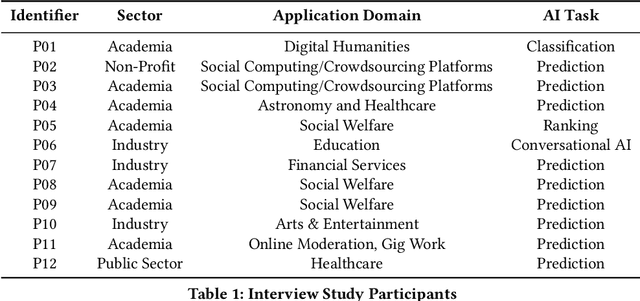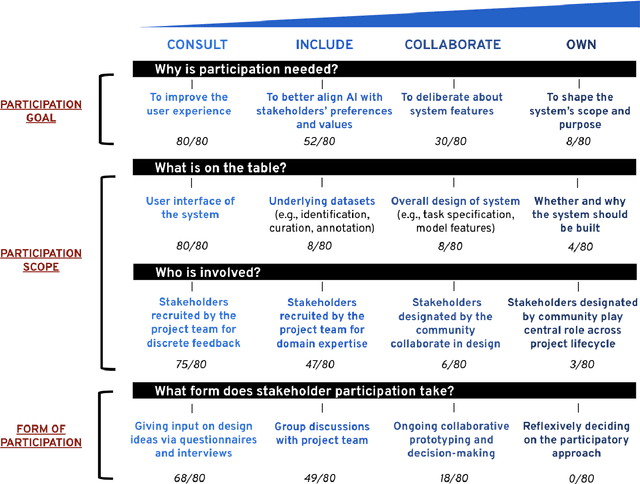The Participatory Turn in AI Design: Theoretical Foundations and the Current State of Practice
Paper and Code
Oct 02, 2023


Despite the growing consensus that stakeholders affected by AI systems should participate in their design, enormous variation and implicit disagreements exist among current approaches. For researchers and practitioners who are interested in taking a participatory approach to AI design and development, it remains challenging to assess the extent to which any participatory approach grants substantive agency to stakeholders. This article thus aims to ground what we dub the "participatory turn" in AI design by synthesizing existing theoretical literature on participation and through empirical investigation and critique of its current practices. Specifically, we derive a conceptual framework through synthesis of literature across technology design, political theory, and the social sciences that researchers and practitioners can leverage to evaluate approaches to participation in AI design. Additionally, we articulate empirical findings concerning the current state of participatory practice in AI design based on an analysis of recently published research and semi-structured interviews with 12 AI researchers and practitioners. We use these empirical findings to understand the current state of participatory practice and subsequently provide guidance to better align participatory goals and methods in a way that accounts for practical constraints.
 Add to Chrome
Add to Chrome Add to Firefox
Add to Firefox Add to Edge
Add to Edge